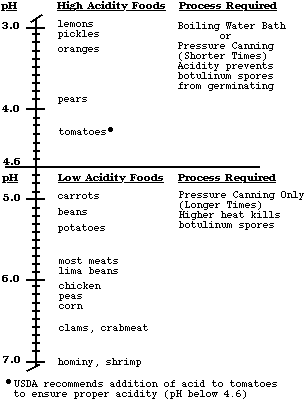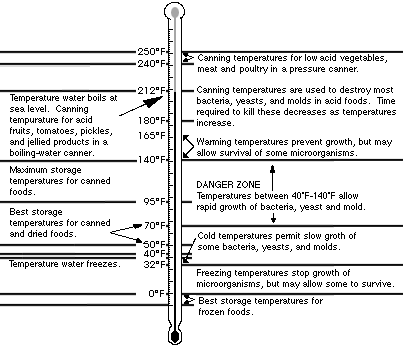
Looking for How to Choose a Canner - Home pressure canners and water bath canners in 2025? Scroll down this page and follow the links. And if you bring home some fruit or vegetables and want to can, freeze, make jam, salsa or pickles, see this page for simple, reliable, illustrated canning, freezing or preserving directions. There are plenty of other related resources, click on the resources dropdown above. If you are having a hard time finding canning lids, I've used these, and they're a great price & ship in 2 days.
If you have questions or feedback, please let me know! There are affiliate links on this page. Read our disclosure policy to learn more.
How to Choose a Canner - Home pressure canners and water bath canners
How to Choose a Canner
If you are shopping for a canner, either your first, or a replacement, it can seem bewildering. There are water bath canners, pressure canners and even electric canners Here's how to know which type and brand you will need and how to select the best quality and value.
Type of pressure canners
Equipment for heat-processing home-canned food is of two main types--boiling-water canners and pressure canners. There are many other types which are NOT recommended by the authorities (see this page for more about obsolete and unsafe canning methods)
Most are designed to hold seven quart jars or eight to nine pints. Small pressure canners hold four quart jars; some large pressure canners hold 18 pint jars in two layers, but hold only seven quart jars. Pressure saucepans with smaller volume capacities are not recommended for use in canning. Small capacity pressure canners are treated in a similar manner as standard larger canners, and should be vented using the typical venting procedures.
Low-acid foods must be processed in a Pressure Canner to be free of botulism risks. This is because botulism-producing bacteria produce spores that can survive boiling water temperatures, but are destroyed using a pressure canner with the appropriate time and pressure, which reaches temperatures between 240 and 250 degrees F. Low-acid foods include meats, dairy, sea food, poultry, all vegetables (except tomatoes) and many fruits (notably figs). Be sure to see this page for a detailed list of the Acid content of common fruits and vegetables.

Higher acid foods (and those which have been acidified and tested) that may be safely canned in a water bath canner include jams, jellies, pickles, applesauce, apple butter, peaches, peach butter, pears, pear butter, spaghetti sauce without meat, tomatoes, ketchup and tomatoes.
Temperatures and Food Safety

Temperatures for Food Preservation
| Temperature(s) | Water Bath | Home Pressure Canner | Effect |
|---|---|---|---|
| Above 250°F (under pressure) |
Can't do it | Can't do it | Canning temperatures for very low acid or non acidic vegetables, dairy, oils, pesto, pumpkin puree, pumpkin butter, etc. These cannot be safely canned at home, and require the higher temperatures of commercial equipment. |
| 240 to 250°F (under pressure) |
Can't do it | OK | Canning temperatures for low acid vegetables (like green beans, corn), meat, and poultry in a Pressure Canner. You can also can borderline and high acid foods like tomato products. |
| 212°F (full rolling boil) |
OK | OK | Temperature water boils at sea level. Canning temperature for acid fruits, tomatoes (with added lemon juice), pickles, and jellied products in a boiling-water canner. |
| 180 to 212°F (simmering boil) |
OK | OK | Canning temperatures are used to destroy many common bacteria, yeasts, and molds in acid foods. Time required to kill these decreases as temperatures increase. |
| 140 to 165°F | Warming temperatures prevent active growth, but may allow survival of some microorganisms. | ||
| 40 to 140°F | DANGER ZONE. Temperatures between 40°F - 140°F allow rapid growth of bacteria, yeast, and molds. | ||
| 95°F | Maximum storage temperature for canned foods. | ||
| 50 to 70°F | Best storage temperatures for canned and dried foods. | ||
| 32°F | Temperature at which water freezes. | ||
| 32 to 40°F | Cold temperatures permit slow growth of some bacteria, yeasts, and molds. | ||
| -10 to 32°F | Freezing temperatures stop growth of microorganisms, but may allow some to survive. | ||
| 0 to -10°F | Best storage temperatures for frozen foods. |
Which Type of Canner Should I Get
There are advantages and disadvantages of Pressure and Boiling Water Bath Canners. Which is best for you depends upon what you want to can and your budget.
Water bath canners are faster for higher acid foods
Although pressure canners may also be used for processing higher acid foods, boiling-water canners are recommended for this purpose because they are faster. a Pressure Canner would require from 55 to 100 minutes to process a load of jars; while the total time for processing most acid foods in boiling water varies from 25 to 60 minutes. A boiling-water canner loaded with filled jars requires about 20 to 30 minutes of heating before its water begins to boil.
A loaded pressure canner requires about
- 12 to 15 minutes of heating before it begins to vent;
- another 10 minutes to vent the canner;
- another 5 minutes to pressurize the canner;
- another 8 to 10 minutes to process the acid food; and, finally,
- another 20 to 60 minutes to cool the canner before removing jars.
But water bath canners cannot be used for meats, dairy, sea food, poultry, vegetables and many fruits.
And the food quality and storage time is better with a pressure canner. Because they get hotter (240F vs 180F-212F) pressure canners result in a better flavor and the ability for to store for a longer time.
a Pressure Canner can be used as a water bath canner , just remove the gauge and weight. That way you have 2 canners in one!
Conclusion: Pressure canners cost more to buy, but ultimately, you can "can" more foods in them, store the foods longer, and use the same canner as a Pressure Canner or without sealing the lid, as a water bath canner .
See this page for a selection of pressure canners at excellent prices, and this link for boiling water bath canners
Related Questions and Answers
Q. I have never been able to get a straight answer about whether adding lemon juice or vinegar is necessary if canning salsa in a Pressure Canner. It would seem to me that you would not need to add the vinegar or lemon juice because you would be bringing up the temperature and maintaining it at high points that would kill off any botulism spores. This would seem to me to be similar to what you do when you safely can your own tuna in a pressure cooker. Can you please provide an answer to this question?
A. Yes, it is necessary! It's more complicated than that!! No process, of any kind, kills ALL spores, so part of the equation is; to what extent is the population of spores diminished, and what will be the replication rate of those that survive? Pressure canning, using high temperatures destroys more spores than water bath canning, and commercial conning equipment destroys a far, far greater percentage of the resident spores than any home method. The addition of acid inhibits the remaining spores growth, keeping the levels of bacteria (which are always present) to a level that is effectively, undetectable and not a threat. Of course, if you store ANY canned food (home or commercial) long enough, it WILL spoil! That's why they're stamped with expiration dates!
See this page for more Answers to Common Questions About Home Canning, Freezing and Making Jams!
Who Invented the Canning Jar? Does Ball still make jars? - See:
A Brief History of the Home Canning Jar: From Mason to Kerr to Ball and More
References
- Iowa State University - Answer Line
- University of Tennessee Agricultural Extension Service - Methods of Canning (PDF)
- The "Complete Guide to Home Canning," Agriculture Information Bulletin No. 539, USDA (Revised 1994).
Free Resources About Storing
- Storing Home Canned Foods
- Packaging and Storing Dry Foods
- Food Storage for Safety and Quality (Colorado State University) pdf
- Cupboard Approximate Storage Times (Kansas State University) pdf
- Refrigerator/Freezer Approximate Storage Times (Kansas State University) pdf
- Proper Care and Handling of Fruits and Vegetables From Purchase to Preparation (Penn State University) pdf
- Storing Vegetables at Home (University of Wisconsin) pdf
- Safe Home Food Storage (Texas A&M University) pdf
Looking for canning equipment and supplies?
Water bath canner with a jar rack
Pressure canners for gas, electric and induction stoves: Presto 23Qt or T-fal 22Qt
Canning scoop (this one is PERFECT)
Ball Blue book (most recent version)
Jars: 8oz canning jars for jams
Find Other types of farms:
Farm markets and roadside stands
Road trips and camping resources
Local Honey, apiaries, beekeepers
Consumer fraud and scams information
Home canning supplies at the best prices on the internet!
Maple Syrup Farms, sugarworks, maple syrup festivals
Environmental information and resources
Farms For Your Event for birthday parties, weddings, receptions, business meetings, retreats, etc.
Festivals - local fruit and vegetable festivals
Get the
most recent version of
the Ball Blue Book
With this Presto 23 quart pressure canner and pressure cooker, you can "can" everything, fruits, vegetables, jams, jellies, salsa, applesauce, pickles, even meats, soups, stews. Model 01781

You can make jams, jellies, can fruit, applesauce, salsa and pickles with water bath canners, like this Granite Ware 12-Piece Canner Kit, Jar Rack, Blancher, Colander and 5 piece Canning Tool Set

